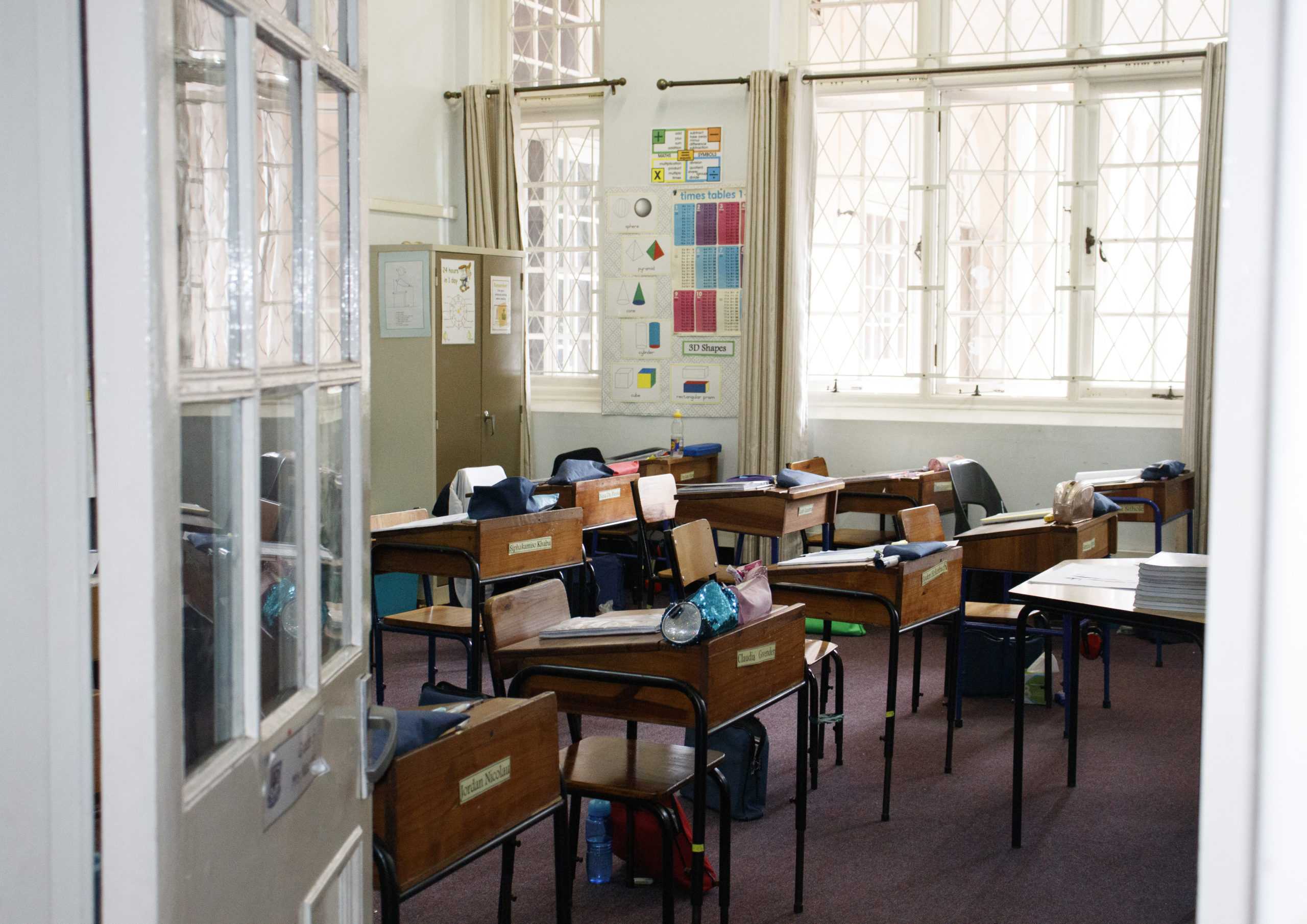Durban, South Africa — A group of teachers huddled around a supply table filled with original art, 3D models and insect specimens in the Livingston Primary School library
Days before the winter break was about to begin, they were working to replace the past quarter’s insect theme with handmade jellyfish lanterns and a life-sized mermaid. These decorations would complete the aquatic oasis set up to greet students as they returned to school at the end of July.
Its campus filling several blocks in the Morningside neighborhood of Durban, Livingstone is a short-term remedial public school that provides individualized support for students with average or above average abilities who face learning difficulties. Some of those difficulties may include hearing impairments, visual impairments, attention disorders, and challenges with motor coordination, memory and language.

Resplica Jugganath, Livingstone’s principal, said Livingstone takes in students who would otherwise not be pushed to succeed in a general education setting.
“When you’re sitting with 30 or 40 children in a class, you teach to the very bright, you focus on the mischief ones, and there’s that middle bar,” Jugganath said. “They go under the radar and they’re lost because they do have the inherent intellectual ability, but they’re not working to optimal potential.”
Livingstone’s goal is to focus on reaching that middle group of students with specific learning difficulties and teaching them skills to succeed independently so they can return to mainstream school environments.
Jugganath said most Livingstone students attend the school for two to three years.
“We close the academic gaps, and then we reintroduce them to the mainstream education system,” Jugganath said.
For many students with special needs in South Africa’s mainstream public schools, that gap is difficult to close. For decades the apartheid government’s racially segregated education system disadvantaged non-white students and neglected students with special needs.
Education experts argue that the post-apartheid South African government continues to fail students with special needs. Many students with disabilities are not even in school, and those who are often receive a subpar education. About 11,500 children with disabilities were on waiting lists to enroll in special schools, according to a 2019 Human Rights Watch report that found that South Africa has not fulfilled its promise to guarantee inclusive education for children with special needs.

Nisha Boosi, deputy principal of the senior program at Livingstone Primary School, has been involved in remedial education for 37 years and has been at Livingstone since 2008. Boosi said one way to improve special education services at public schools is to better train teachers who are working with special needs students.
“Our goal is to make those skills available to as many people as possible because ideally, every teacher should be teaching in this kind of situation and the children should have this facility [resource school] available,” Boosi said.
In many ways, Livingstone, which serves 480 students, stands out among special needs public schools. At Livingstone, there is an on-site remedial-trained staff network of 120 people including speech therapists, occupational therapists, social workers, counselors and a part-time psychologist.
Though the school has more resources than many public schools in the Durban area, Livingstone is still a public school. Like other public schools in South Africa, Livingstone receives a grant from the government, but that grant accounts for only about 5% of the school budget, Jugganath said.
“We are so passionate about these kids, but we can’t give them everything because of the limitations and funding because we are a government school,” said Ayesha Muniff, an audiologist at Livingstone.
Most of the school’s revenue comes from school fees and donations from alumni parents, Jugganath said.
“We have a mix of parents that come here,” Jugganath said. “We have your very affluent parents, we have your average income parents, and then you do have some parents [whose children] are on school fee assistance.”
Annual fees at Livingstone vary from R41,600 ($2,800) to R55,400 ($3,700), depending on student grade level, Jugganath said.
Despite funding challenges, Livingstone offers an extensive support network for its students. A team consisting of a teacher, a social worker, an audiologist, a speech and language therapist, and an occupational therapist do assessments for each student. These assessments form the basis of an Individual Education Plan (IEP) to address each student’s specific needs, which may include a combination of speech, physical or occupational therapy.
Unlike in the U.S., South African law does not require an IEP for special needs students, so Livingstone implements IEPs as part of its own education philosophy.
Part of the IEP process at Livingstone also involves educators collaborating with parents to ensure that the student is making adequate progress.
Jugganath, who has been part of the Livingstone team since 1999 when she began as a Level 1 teacher, said she recognizes the importance of interacting with parents in order to create a bridge of understanding.
“In a mainstream school, you’ll be lucky if you see the teacher once in the year,” Jugganath said. “At Livingstone, if your child is as good as gold, we’ll see you at least four times in the year.”
Reetasha Budran, deputy principal of the junior program, said it can be overwhelming for parents to advocate for their child on their own, but Livingstone provides a partnership that reassures and relaxes their anxieties.
“You create that sort of atmosphere with the parents that listen,” Budran said. “This is a family school, and we’re here working in the interest of the child. It’s a winning combination.”
















































